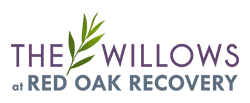What are life skills? Good mental health involves knowing measures that can prevent relapse and lead to recovery from substance abuse, trauma, or mental health issues. Positive change is possible through a blend of evidence-based practices, somatic interventions, experiential therapy, and holistic approaches that encourage women to unlock their true potential. “Redefining the Clinical Experience” is one of our goals and is a part of each treatment program. To learn more, contact the Willows at Red Oak today.
Life Skills Are Crucial to Treat Many Disorders
Eating disorders and trauma treatment benefit from therapy that can heal. We offer a dual diagnosis to add depth to learning life skills to overcome negative behaviors. PTSD, depression, anxiety, and other co-occurring disorders can benefit from the treatment of a particular issue and mental health at the same time.
Therapies for healing include CBT, Cognitive Behavioral Therapy, psychotherapy, which may consist of individual, family, or group talk therapy and therapies that enhance the development of coping. Coping is a necessary ability when learning life skills that will be valuable after recovery.
What Are Life Skills? Things That Can Be Fun
Learning new life skills can be rewarding and open up new pathways to enjoyment and fulfillment of one’s potential in recovery and after.
For example, experiential therapy focuses on helping the individual engage in specific activities that are therapeutic and beneficial.
They may call upon the more creative sides of a woman and include art therapy or music therapy. Those who love animals or have never even experienced them can enjoy equine therapy or therapy through horses. Nature is renewing, and there are some women who will find direction through hiking therapy, which gives them the serenity of outdoors as a balm to anxiety.
These therapies increase the chances that treatment will be more successful as life skills that provide renewal, passion, self-confidence, and self-esteem are viable. Through this type of therapy, patients can address challenges in the real world more easily. They reduce depression and anxiety and are valuable tools for peace of mind. Knowing life skills puts you on the path to recovery without relapse.
Women and Wellness
Our clients are women, some of which have a substance use disorder and other co-occurring disorders, such as trauma. Each has unique treatment needs, and our treatment plans offer a path towards their goals in recovery.
Our facility includes residential to the long-term care of 90 days or more. Aftercare and transitional referrals are part of our program as well.
We offer acupuncture, meditation, and yoga, and we have a peaceful, homelike horse farm location. Surrounded by nature and a serene environment, our clients heal and grow into women with a positive and bright future.
Contact the Willows at Red Oak
Peer support is a part of our women’s substance abuse program. The Willows at Red Oak Recovery understands women and their unique needs. We work with relationship building and service work to create healing paths for our clients, as well.
We provide a sanctuary where young women can begin recovery and unlock their full potential. Learning skills for a lifetime of independence and stability is possible here with transformative trauma-based clinical care. In addition, we offer a wide range of treatments, including:
- Cognitive-behavioral therapy (CBT)
- Dialectical behavior therapy (DBT)
- Trauma therapy
- Yoga therapy
- Gardening therapy
Our focus on mental health, trauma, and eating disorders, along with substance abuse makes us unique. Don’t let mental health issues control your life. You can heal and discover wellness by learning new life skills. Contact The Willows at Red Oak at 855.773.0614, and we’ll get you on the right path to a brighter future through recovery with the discovery of new life skills.


